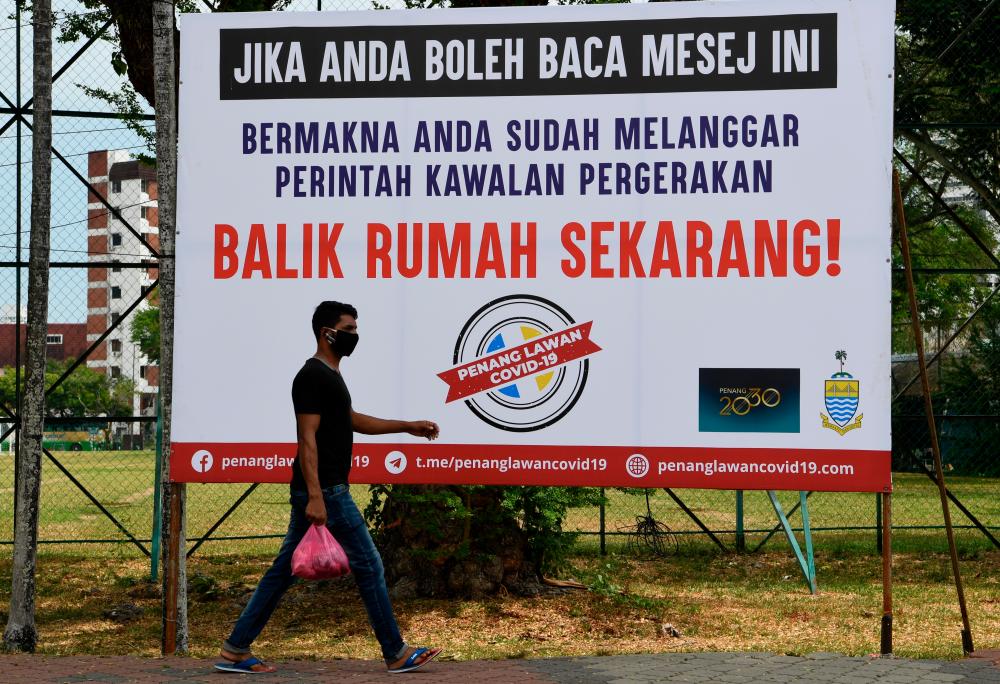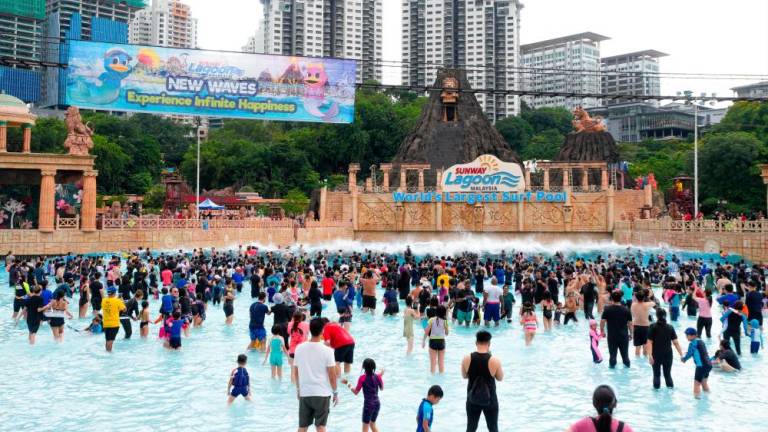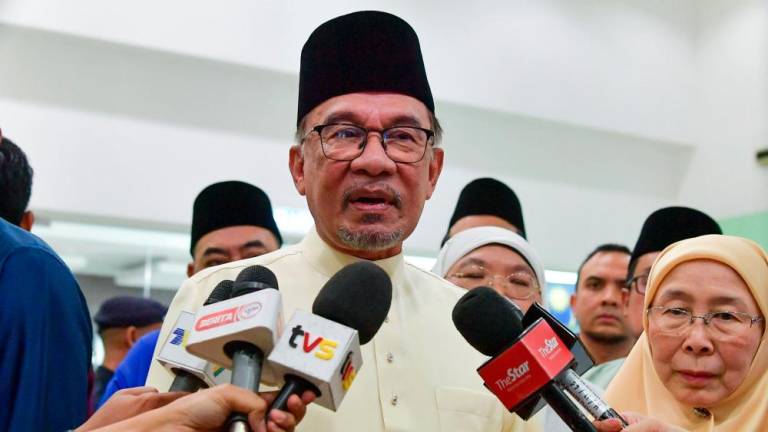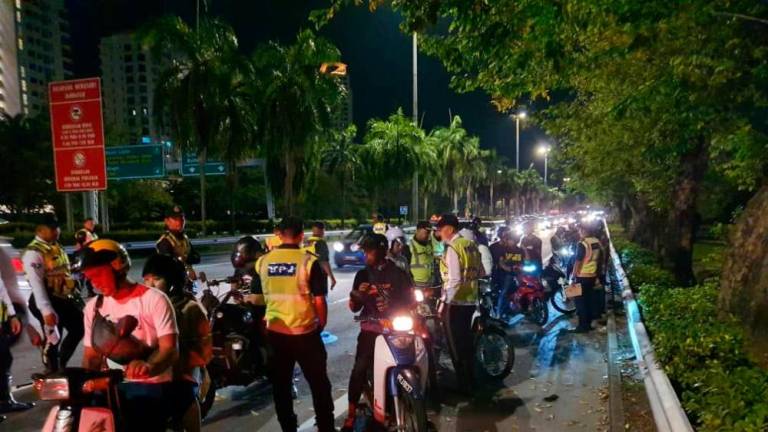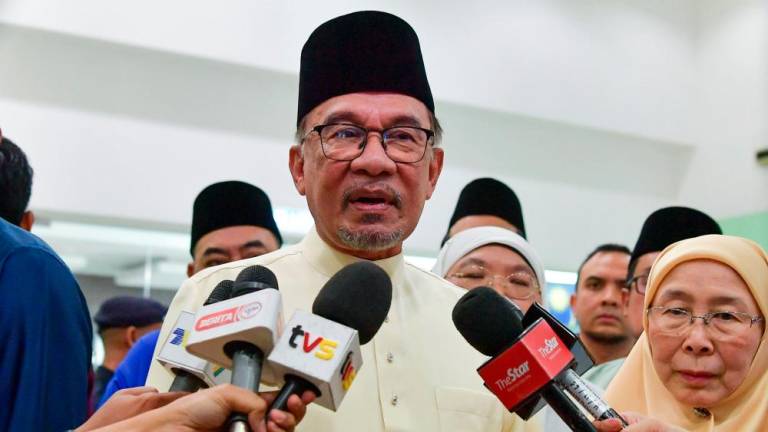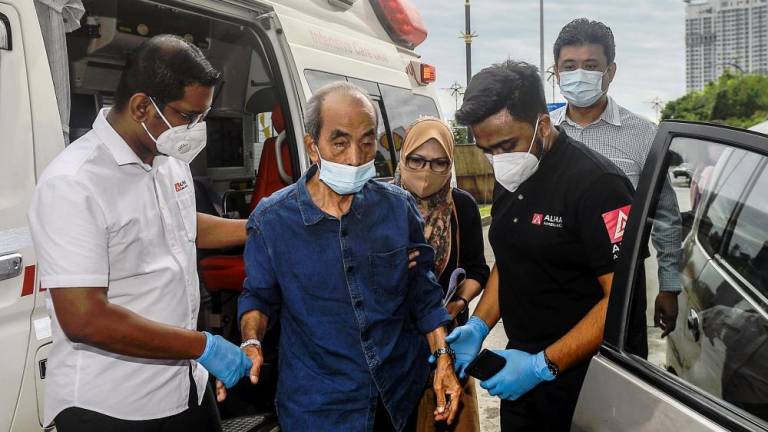GEORGE TOWN: Police here are no longer going to tolerate people who violate the movement control order (MCO) as the authorities tighten their grip on trying to cut the spread of the Covid-19 virus here.
Hardly nine hours after seven men were arrested for allegedly playing football and jogging in defiance of the MCO, another police team swooped in on five men, including one foreigner, for apparently consuming alcohol near a florist outlet in Burmah Road around 10am.
The men, aged between 33 and 57, were caught in the act of sipping cheap alcohol while the foreigner could not produce a valid immigration document.
They will be investigated under the MCO violation where if found guilty, the suspects can be fined not more than RM1,000 or jailed for not more than six months or both, said northeast district police chief ACP Soffian Santong.
Under the MCO, the cops are empowered to detain anybody on grounds that their presence can lead to the spread of an infectious disease, said Soffian.
Chief Minister Chow Kon Yeow in his daily social media briefing confirmed that the police have relayed that they will be stricter and uncompromising when enforcing the MCO as part of efforts to cut the transmission of the virus.
”Action committees have been mobilised in each district to better implement the MCO. Therefore, all Penangites are urged to continue providing their support and cooperation on this matter,” Chow said.
Although the average compliance rate is relatively encouraging at 94%, Chow said the state was aiming for total adherence to the MCO.
Chow also announced that the state executive councillors and he, including the two deputy chief ministers, have agreed to forgo one-month salary to help raise funding for those who are impacted by the MCO and the economic damage that the virus has caused here.
On a different note, Penang is also in the midst of setting up a system for the distribution of food and basic necessities to households in need.
The aim in the coming days is also to reduce unorganised movements during the MCO, to allow individuals, who are part of the supply chain of essential services and goods, to be given protective gear and to cut losses stemming from inefficient distribution of food supplies and essential services.
“We are no longer running in the 100 meter sprint. We’re in a marathon,” Chow said.



